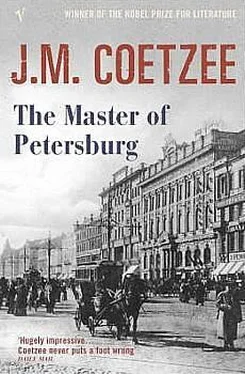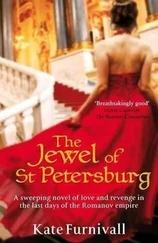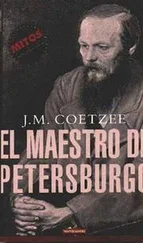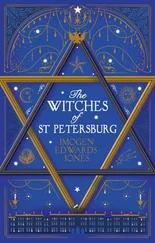He knows what he is in search of. As he swims he sometimes opens his mouth and gives what he thinks of as a cry or call. With each cry or call water enters his mouth; each syllable is replaced by a syllable of water. He grows more and more ponderous, till his breastbone is brushing the silt of the river-bed.
Pavel is lying on his back. His eyes are closed. His hair, wafted by the current, is as soft as a baby's.
From his turtle-throat he gives a last cry, which seems to him more like a bark, and plunges toward the boy. He wants to kiss the face; but when he touches his hard lips to it, he is not sure he is not biting.
This is when he wakes.
Following old habit, he spends the morning at the little desk in his room. When the maid comes to clean, he waves her away. But he does not write a word. It is not that he is paralysed. His heart pumps steadily, his mind is clear. At any moment he is capable of picking up the pen and forming letters on the paper. But the writing, he fears, would be that of a madman – vileness, obscenity, page after page of it, untameable. He thinks of the madness as running through the artery of his right arm down to the fingertips and the pen and so to the page. It runs in a stream; he need not dip the pen, not once. What flows on to the paper is neither blood nor ink but an acid, black, with an unpleasing green sheen when the light glances off it. On the page it does not dry: if one were to pass a finger over it, one would experience a sensation both liquid and electric. A writing that even the blind could read.
In the afternoon he returns to Svechnoi Street, to Pavel's room. He closes the inner door to the apartment and props a chair against it. Then he lays the white suit out on the bed. By daylight he can see how grimy the cuffs are. He sniffs the armpits and the smell comes clearly: not that of a child but of another man, fullgrown. He inhales it again and again. How many breaths before it fades? If the suit were shut up in a glass case, would the smell be preserved too?
He takes off his own clothes and puts on the white suit. Though the jacket is loose and the trousers too long, he does not feel clownish in it.
He lies down and crosses his arms. The posture is theatrical, but wherever impulse leads he is ready to follow. At the same time he has no faith in impulse at all.
He has a vision of Petersburg stretched out vast and low under the pitiless stars. Written in a scroll across the heavens is a word in Hebrew characters. He cannot read the word but knows it is a condemnation, a curse.
A gate has closed behind his son, a gate bound sevenfold with bands of iron. To open that gate is the labour laid upon him.
Thoughts, feelings, visions. Does he trust them? They come from his deepest heart; but there is no more reason to trust the heart than to trust reason.
From somewhere to somewhere I am in retreat, he thinks; when the retreat is completed, what will be left of me?
He thinks of himself as going back into the egg, or at least into something smooth and cool and grey. Perhaps it is not just an egg: perhaps it is the soul, perhaps that is how the soul looks.
There is a rustling under the bed. A mouse going about its business? He does not care. He turns over, draws the white jacket over his face, inhales.
Since the news came of his son's death, something has been ebbing out of him that he thinks of as firmness. I am the one who is dead, he thinks; or rather, I died but my death failed to arrive. His sense of his own body is that it is strong, sturdy, that it will not yield of its own accord. His chest is like a barrel with sound staves. His heart will go on beating for a long time. Nevertheless, he has been tugged out of human time. The stream that carries him still moves forward, still has direction, even purpose; but that purpose is no longer life. He is being carried by dead water, a dead stream.
He falls asleep. When he wakes it is dark and the whole world is silent. He strikes a match, trying to gather his fuddled wits. Past midnight. Where has he been?
He crawls under the covers, sleeps intermittently. In the morning, on his way to the washroom, smelly, dishevelled, he runs into Anna Sergeyevna. With her hair under a kerchief, in big boots, she looks like any market-woman. She regards him with surprise. 'I fell asleep, I was very tired,' he explains. But it is not that. It is the white suit, which he is still wearing.
'If you don't mind, I will stay here in Pavel's room till I leave,' he goes on. 'It will only be for a few days.'
'We can't discuss it now, I'm in a hurry,' she replies. Clearly she does not like the idea. Nor does she give her consent. But he has paid, there is nothing she can do about it.
All morning he sits at the table in his son's room, his head in his hands. He cannot pretend he is writing. His mind is running to the moment of Pavel's death. What he cannot bear is the thought that, for the last fraction of the last instant of his fall, Pavel knew that nothing could save him, that he was dead. He wants to believe Pavel was protected from that certainty, more terrible than annihilation itself, by the hurry and confusion of the fall, by the mind's way of etherizing itself against whatever is too enormous to be borne. With all his heart he wants to believe this. At the same time he knows that he wants to believe in order to etherize himself against the knowledge that Pavel, falling, knew everything.
At moments like this he cannot distinguish Pavel from himself. They are the same person; and that person is no more or less than a thought, Pavel thinking it in him, he thinking it in Pavel. The thought keeps Pavel alive, suspended in his fall.
It is from knowing that he is dead that he wants to protect his son. As long as I live, he thinks, let me be the one who knows! By whatever act of will it takes, let me be the thinking animal plunging through the air.
Sitting at the table, his eyes closed, his fists clenched, he wards the knowledge of death away from Pavel. He thinks of himself as the Triton on the Piazza Barberini in Rome, holding to his lips a conch from which jets a constant crystal fountain. All day and all night he breathes life into the water. The tendons of his neck, caught in bronze, are taut with effort.
November has arrived, and the first snow. The sky is filled with marsh-birds migrating south.
He has moved into Pavel's room and within days has become part of the life of the building. The children no longer stop their games to stare when he passes, though they still lower their voices. They know who he is. Who is he? He is misfortune, he is the father of misfortune.
Every day he tells himself he must go back to Yelagin Island, to the grave. But he does not go.
He writes to his wife in Dresden. His letters are reassuring but empty of feeling.
He spends his mornings in the room, mornings of utter blankness which come to have their own insidious and deathly pleasure. In the afternoons he walks the streets, avoiding the area around Meshchanskaya Street and the Voznesensky Prospekt where he might be recognized, stopping for an hour at a tea-house, always the same one.
In Dresden he used to read the Russian newspapers. But he has lost interest in the world outside. His world has contracted; his world is within his breast.
Out of consideration for Anna Sergeyevna he returns to the apartment only after dusk. Till called to supper he stays quietly in the room that is and is not his.
He is sitting on the bed with the white suit on his lap. There is no one to see him. Nothing has changed. He feels the cord of love that goes from his heart to his son's as physically as if it were a rope. He feels the rope twist and wring his heart. He groans aloud. 'Yes!' he whispers, welcoming the pain; he reaches out and gives the rope another twist.
Читать дальше












